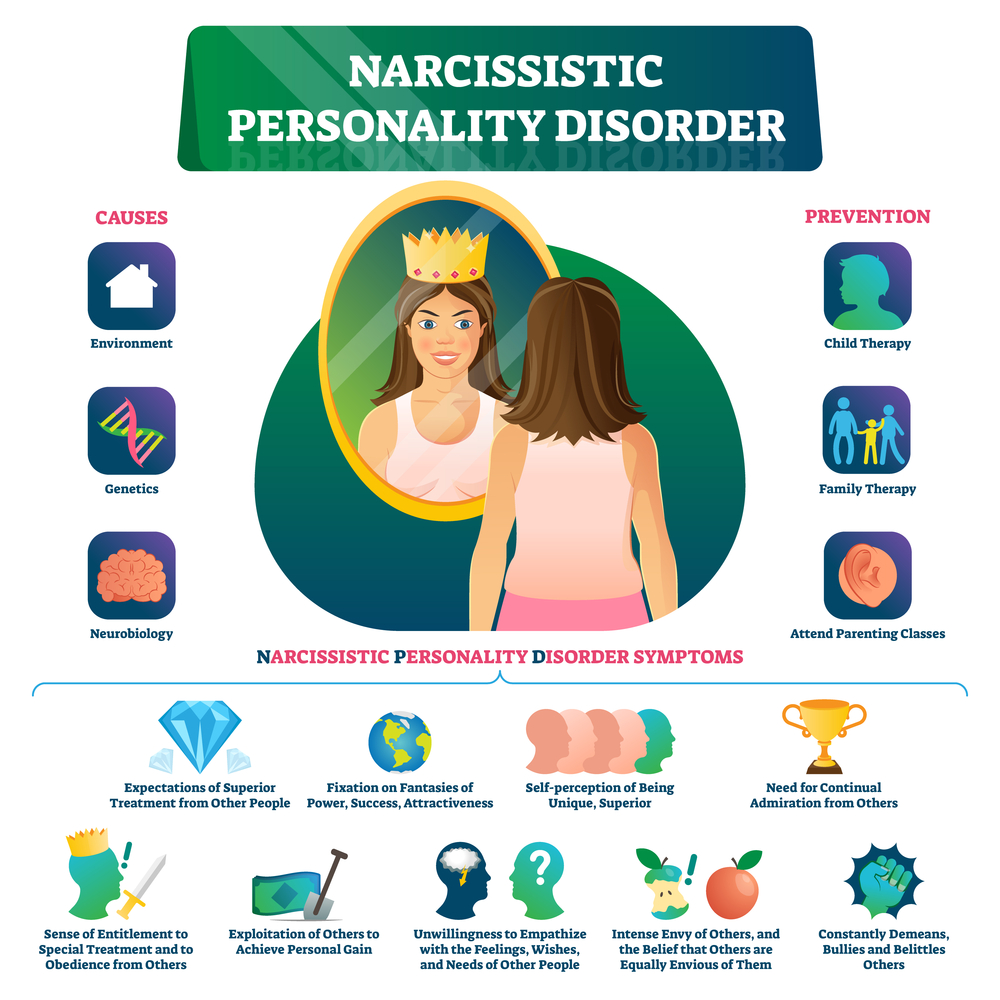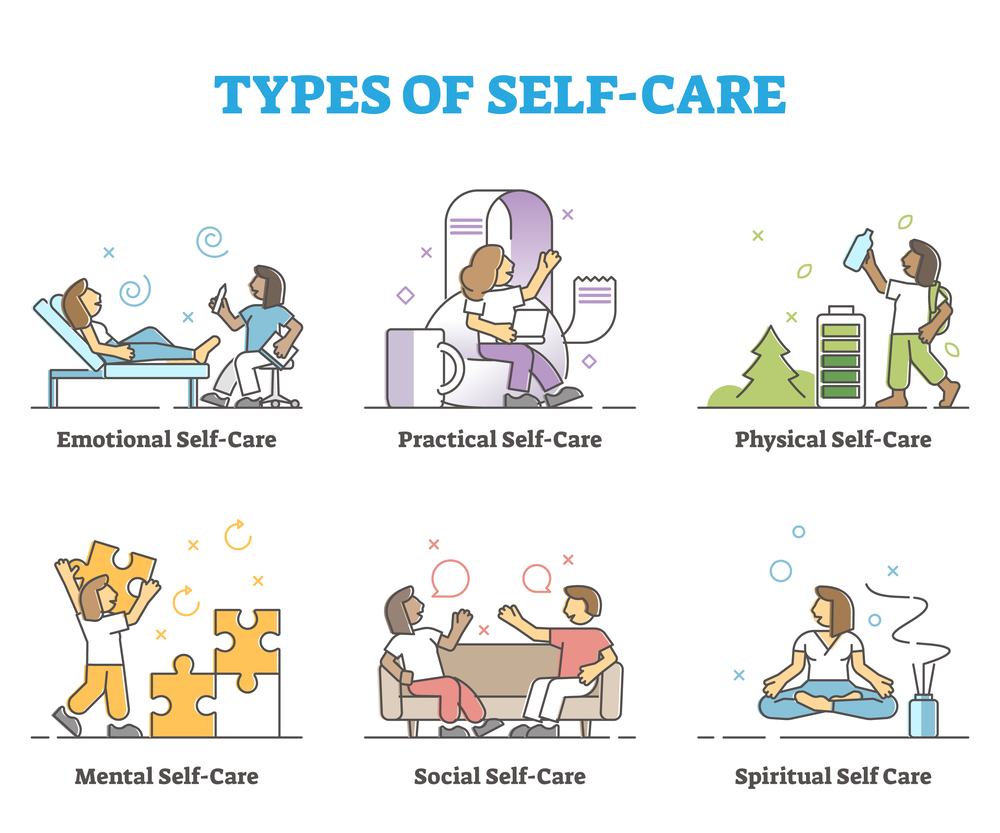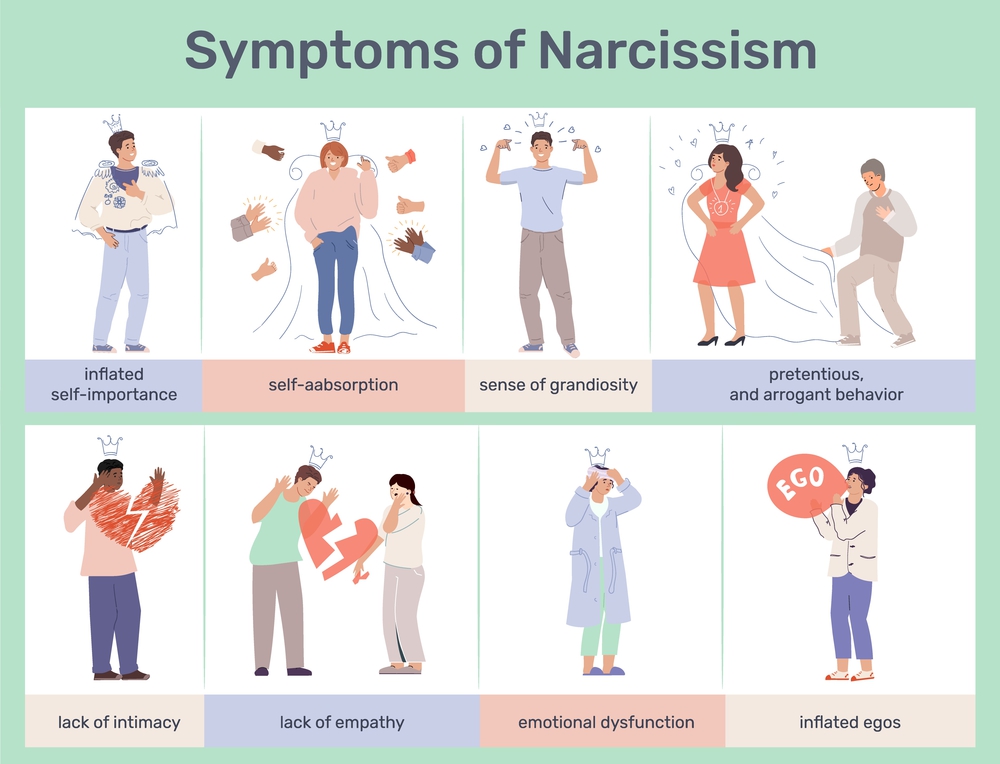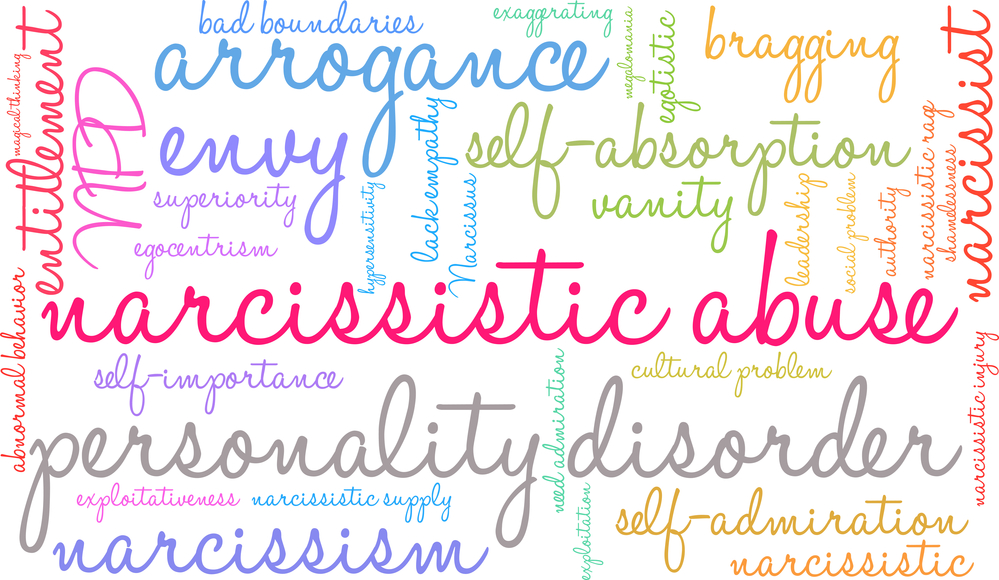5 Things to Never Do After Breaking Up with a Narcissist: Essential Steps
 Ending a relationship with a narcissist can be particularly challenging and fraught with emotion. Often, the dynamics of a relationship with someone who has narcissistic tendencies can leave you second-guessing yourself and vulnerable to further manipulation post-breakup. It is crucial to protect yourself and prioritize healing, setting solid boundaries that prevent you from engaging in […]
Ending a relationship with a narcissist can be particularly challenging and fraught with emotion. Often, the dynamics of a relationship with someone who has narcissistic tendencies can leave you second-guessing yourself and vulnerable to further manipulation post-breakup. It is crucial to protect yourself and prioritize healing, setting solid boundaries that prevent you from engaging in […]Ending a relationship with a narcissist can be particularly challenging and fraught with emotion. Often, the dynamics of a relationship with someone who has narcissistic tendencies can leave you second-guessing yourself and vulnerable to further manipulation post-breakup. It is crucial to protect yourself and prioritize healing, setting solid boundaries that prevent you from engaging in patterns that may have once seemed normal but are ultimately harmful.
Navigating the aftermath requires clear guidelines to avoid common pitfalls that can delay recovery. The emotional rollercoaster brought on by a breakup with a narcissist demands a focus on self-care, alongside an understanding of how to deal with any continued attempts at manipulation or control. It is essential to arm yourself with the knowledge and strategies to move forward confidently and securely from the tumultuous sea of a past toxic relationship.
Key Takeaways
- Protecting oneself after a breakup involves setting clear boundaries.
- Self-care is essential in the healing process following a narcissistic relationship.
- Awareness and strategies are crucial to moving on from manipulative relationship dynamics.

Recognizing Narcissistic Behavior Patterns
Narcissistic individuals often display identifiable behaviors that can negatively impact their partners. It's essential to recognize these patterns to understand the dynamics of the relationship and begin the healing process after a breakup.
Manipulation: You might notice a history of your ex-partner twisting situations to their favor. They may have made promises without intending to keep them or used your emotions against you to get what they want.
- Blame Shifting: Rather than taking responsibility, a narcissist will often shift the blame onto you. They might accuse you of being the sole cause of problems, even when it's unjustified.
- Control: Your autonomy was likely undermined, with the narcissist dictating the terms of the relationship, including who you spend time with or what you wear.
Gaslighting: This form of psychological manipulation involves the narcissist denying your reality, making you second-guess yourself. Examples include:
- Dismissing your feelings
- Invalidating your memories
- Denying events that occurred
Recognize these tactics as tools to maintain a sense of superiority and dominance in the relationship.
Key Takeaway: If you've experienced manipulation, blame-shifting, control, or gaslighting, you were likely dealing with narcissistic behavior. Understanding these patterns is crucial in moving forward and healing from the relationship.
 The Importance of Establishing Boundaries
The Importance of Establishing Boundaries
Creating firm boundaries after a breakup is crucial, especially when dealing with a narcissist who may not recognize or respect your limits. This will help you maintain control, protect your self-esteem, and begin the healing process.
Understanding Personal Boundaries
Boundaries define what you are comfortable with and how you expect to be treated by others. In the context of a post-breakup scenario with a narcissist, it’s essential that you:
- Recognize your right to privacy and peace of mind.
- Acknowledge that your needs and feelings are valid.
- Understand that it's okay to say no and stand firm in your decisions.
Key Takeaway: Your boundaries are a testament to your self-respect; uphold them diligently.
Implementing No Contact Rule
Going no contact with a narcissist after a breakup means:
- Not responding to any calls, texts, or emails.
- Avoiding personal interactions and mutual social circles.
- Block or unfriend them on social media to prevent any form of digital interaction.
By doing this, you cut off the narcissist's access to you, which diminishes their power to manipulate or control your feelings.
Key Takeaway: The no-contact rule is a decisive step in reclaiming your independence and emotional well-being.
 Emotional Healing and Self-Care
Emotional Healing and Self-Care
After a breakup with a narcissist, focusing on your emotional health is crucial. It's important to take steps toward healing and ensure a supportive community surrounds you.
Seeking Therapy and Support Systems
- Find a Therapist: Reach out to a qualified therapist who understands the dynamics of narcissistic relationships. Your therapist can provide a safe space for you to process your experiences and feelings.
- Build a Support Network: Surround yourself with friends, family, or support groups who listen and empower you. Having people you trust can help reinforce the positive steps you're taking.
Practicing Self-Compassion and Mindfulness
- Embrace Self-Compassion: Treat yourself with kindness as you would a dear friend. Acknowledge your strengths and the courage it took to leave a toxic relationship.
- Mindfulness Techniques: Practice mindfulness to stay present and reduce anxiety. Techniques like deep breathing, meditation, or yoga can help you maintain a sense of calm.
Key Takeaway: Your healing journey is personal and requires patience. Engage in therapy and build a robust support network while treating yourself compassionately and practicing mindfulness.
 Handling Communication and Social Interactions
Handling Communication and Social Interactions
After a breakup with a narcissist, it's essential to manage your communication and social interactions wisely. This ensures you maintain your well-being and avoid further emotional entanglement.
Dealing with Social Media
When it comes to social media, consider taking these steps:
- Limit your activity: Reduce your time on social media platforms to avoid any potential conflicts or unwanted encounters.
- Adjust your privacy settings: Protect your information by tightening your privacy settings. This can help prevent the narcissist from monitoring your activities or contacting you.
Key takeaway: Restrict your online presence and safeguard your personal space for peace of mind.
Protecting Your Narrative
Be mindful of your personal story after the breakup:
- Keep details private: Choose carefully whom you confide in to avoid the spread of misinformation.
- Record any lies: If a smear campaign arises, keep a factual record of events to defend your narrative if necessary.
Key takeaway: Your story is yours to tell. Share it with those who respect your perspective and support you.
Legal Considerations and Negotiations
In the aftermath of a breakup with a narcissist, navigating the legal landscape requires careful strategy, mainly if divorce and child custody are involved. Be mindful of the manipulative tactics a narcissist may employ, and arm yourself with legal support and knowledge.
When separating from a narcissistic partner, you must prioritize your child's well-being. A clear and level-headed approach to child custody will be crucial in this complex process.
- Prepare Documentation: Keep thorough records of interactions and parenting responsibilities.
- Seek Legal Advice: Engage a lawyer experienced in such cases to help establish fair custody arrangements.
Key Takeaway: Solid preparation and professional guidance are your allies in seeking a custody agreement that protects your child's interests.
Understanding Narcissists' Legal Tactics
Narcissists are often manipulative, using the legal system to continue to exert control or punish their former partners. Recognizing these tactics is vital to navigating negotiations and legal proceedings.
- Anticipate Challenges: Be aware that a narcissist may use tactics like prolonging proceedings to increase stress and legal costs.
- Stay Firm and Organized: Remain calm, collected, and organized in your approach. Keeping emotions in check helps you make clear decisions.
Key Takeaway: Recognizing and preparing for a narcissist's manipulative legal strategies empowers you to stay a step ahead in legal negotiations.
Rebuilding Your Sense of Self
After a breakup with a narcissist, it’s crucial to re-establish who you are. Your sense of self may feel shaken, but remember, you are not the negative things a narcissist made you feel. The journey to recovery is about rediscovering your value and rebuilding your self-esteem.
Identify Your Strengths:
Start by listing out your strengths and achievements. Recognize the qualities that make you unique and notable.
- Persistence
- Compassion
- Creativity
- Intelligence
Set Boundaries:
Learn to set firm boundaries. This helps to protect your emotional space from being compromised by others, particularly someone with narcissistic traits.
- Say no to what doesn't serve your well-being
- Permit yourself to prioritize your needs
- Avoid communicating with the narcissist
Cultivate New Interests:
Nurturing new hobbies or returning to past passions can significantly boost your confidence.
- Join a class or club
- Volunteer for a cause you care about
- Start a project you've been putting off
Practice Self-Compassion:
Be kind to yourself; recovery is not instantaneous. Recognize you are moving away from being a victim to becoming a survivor.
- Daily affirmations
- Treat yourself with the same compassion you offer others
- Forgive yourself for any perceived shortcomings
Surround Yourself With Positivity:
Connect with supportive and optimistic people who affirm your worth.
- Engage with friends who respect and uplift you
- Seek out a support group or therapist
Key Takeaway: You've got this. Rebuilding your sense of self after a narcissistic relationship requires time and effort. Still, by focusing on your strengths, setting boundaries, engaging in new activities, and being kind, you will reemerge more assertive and self-assured.
 Avoiding New Relationships With Narcissists
Avoiding New Relationships With Narcissists
It's essential to be vigilant and knowledgeable about the traits of narcissistic individuals to avoid repeating past mistakes. Protecting oneself from entering a new relationship with a narcissist means recognizing warning signs and applying lessons learned.
Identifying Red Flags Early On
- Love Bombing: Be cautious when someone showers you with excessive attention, gifts, and affection early in the relationship. This can be a tactic known as love bombing, which narcissists often use to manipulate.
Sign of Interest Potential Red Flag Quick to praise Excessive flattery Eager to meet Rushing intimacy Generous gifts Overwhelming you - Trust Your Instincts: If you feel something is off or uncomfortable, trust those feelings. They are often early indicators that the person may have narcissistic tendencies.
Learning from Past Experiences
- Patterns: Reflect on your previous relationship with a narcissist. Notice any patterns or behaviors that were red flags. Keep them in mind when meeting someone new.
- Past betrayals
- Disrespectful attitudes
- Lack of empathy
- Self-Reflection: You've grown from your past experiences. Use this insight to strengthen your boundaries and recognize when they're being tested.
- Build Healthy Boundaries: List non-negotiable values and stick to them. If someone tries to overstep or dismiss your boundaries, it clearly indicates their disrespect for your needs.
Key Takeaway: Stay alert to signs of narcissistic behavior and trust your instincts, using the wisdom from your past to keep your boundaries firm in your future relationships.
Managing Emotional Responses and Triggers
When you've broken up with a narcissist, it's normal to experience a whirlwind of intense feelings. Handling these emotions is key to your well-being.
- Anger: It's a typical response. Acknowledge it, but try breathing exercises or a walk to cool down.
- Sadness: Allow yourself some tears; it's part of healing. However, balance it with activities that uplift you.
- Grief: Similar to sadness, grief is profound. It involves coming to terms with the loss. Create a ritual, like writing a farewell letter (but don't send it), to help process these emotions.
Emotional abuse from a narcissistic relationship can lead to anxiety and a range of negative emotions. To navigate through this:
- Recognize your triggers and set a plan to manage them. Perhaps meditation or calling a friend can act as proper distraction techniques.
- Establish boundaries to protect yourself from further emotional harm. Say no when needed.
- Seek support from friends, family, or professionals who can provide insight and reassurance.
Taking care of your mental health is crucial. Don't hesitate to reach out for professional help if you feel overwhelmed by anxiety or other negative emotions.
Key Takeaway: Managing your emotional responses involves acknowledging your feelings, finding healthy outlets, and seeking support. Remember, it's okay to have these feelings, and it's okay to ask for help.
 Understanding the Dynamics of Narcissistic Abuse
Understanding the Dynamics of Narcissistic Abuse
When you're dealing with a narcissist, it's crucial to comprehend the specific abuse patterns they often display. Narcissistic abuse is a form of emotional abuse perpetrated by someone who exhibits grandiosity and self-centered behavior. At its core, this abuse is about power and control, affecting your emotional health profoundly.
- Grandiosity and Fantasy: Narcissists typically demonstrate an inflated sense of importance and an obsession with fantasies of success, power, or attractiveness.
- Need for Admiration: They require constant attention and admiration from those around them.
Recognizing the cycle of abuse is fundamental. This cycle involves:
- Idealization: The narcissist showers you with praise and affection, placing you on a pedestal.
- Devaluation: Your flaws become the focus, and emotional manipulation begins.
- Discard: The narcissist may end the relationship or withdraw affection.
- Hoovering: They attempt to draw you back into the cycle with promises of change or renewed attention.
These stages are often repeated, trapping you in a harmful loop. Protecting your emotional health means remaining aware of these patterns and seeking support when needed. Remember, the problem lies with their behavior, not your worthiness.
Coping with Post-Breakup Challenges
After ending a relationship with a narcissist, it’s natural to grapple with a mix of emotions. You may encounter fears about the future and self-doubt due to the dynamics of the past relationship. Grief and depression may also emerge as you process the loss. The path to recovery involves recognizing and working through these feelings with care.
- Acknowledging Your Feelings: Accept that it's normal to feel a range of emotions, including sadness and confusion. It’s part of the healing process.
- Rebuilding Trust: Start with trusting yourself. Remember, your intuition led you to leave for good reasons.
In navigating these waters, you may feel your confidence wane. Reframe your thoughts, reminding yourself that recovery takes time. Create a personal growth plan outlining steps toward regaining your trust and well-being.
- Creating a Support System: Locate friends, family, or support groups that understand what you’re going through.
Remember, self-care is crucial. Prioritize activities that bring you joy and relaxation, helping combat depression.
- Planning for the Future: Set small, achievable goals. Structure helps rebuild a sense of normalcy and progress.
Key Takeaway: Healing from a narcissistic relationship is a gradual journey. Be patient with yourself and acknowledge each step forward. With time and support, you can overcome the challenges and grow stronger and more resilient.
- Don't Re-Engage in Communication: Avoid the temptation to get back in touch. Narcissists often try to lure their former partners into a cycle of reconciliation and turmoil.
- Resist Social Media Stalking: Keeping tabs on their online life can keep them emotionally tied and hinder their healing process.
- Avoid Mutual Friends for Sensitive Discussions: Sharing your feelings with mutual friends might lead to information getting back to your ex. Seek support from people not connected to your ex-partner.
- Don’t Seek Closure from Them: Trying to get a sense of closure or understanding from a narcissist can be futile and emotionally draining.
- Refrain from Public Confrontation: Publicly confronting or exposing them might backfire and give the narcissist a platform to manipulate the narrative.
Frequently Asked Questions
Understanding how to navigate post-breakup interactions with a narcissist can help you heal and move on more effectively.
Is it advisable to maintain a friendship with a narcissist after ending a romantic relationship?
Maintaining a friendship with a narcissist after a break-up is not recommended. It can lead to additional emotional entanglement and prevent you from moving on. Your best strategy is to prioritize your well-being.
What are the typical behaviors a narcissist may display following a breakup?
Following a breakup, a narcissist may try to regain control or attention by:
- Disparaging you to mutual acquaintances.
- Attempting to evoke jealousy through new relationships.
It's important to remember that the behaviors you're encountering do not reflect your worth as a person. These behaviors stem from the other person's ego and should not be taken personally. Remember, and don't let their actions affect your self-esteem..
Do narcissists experience remorse or sorrow over the end of a relationship?
Narcissists may display remorse or sorrow, but it often stems from losing control, not genuine empathy. Remember, their focus is typically on how events affect them, not on the emotional damage to others.
What strategies can be effective when ending a relationship with a narcissistic individual?
Effective strategies include:
- Setting firm boundaries.
- Seeking support from friends, family, or professionals.
- Staying firm and leaning on your support system will reaffirm your decision and strength.
How might a narcissist seek retaliation after a relationship concludes?
A narcissist might seek retaliation in various ways, including spreading rumors, legal battles, or emotional manipulation. Stay vigilant and safeguard your boundaries to minimize their impact.
How do narcissists typically cope with the emotional impact of a breakup?
Narcissists may cope by refusing to acknowledge the emotional impact or by quickly moving on to another relationship. Understand that this is their way to avoid facing vulnerabilities and does not reflect your significance in their life.

 Navigating Post-Breakup Waters: 5 Actions to Avoid After Ending a Relationship with a Narcissist
Navigating Post-Breakup Waters: 5 Actions to Avoid After Ending a Relationship with a Narcissist